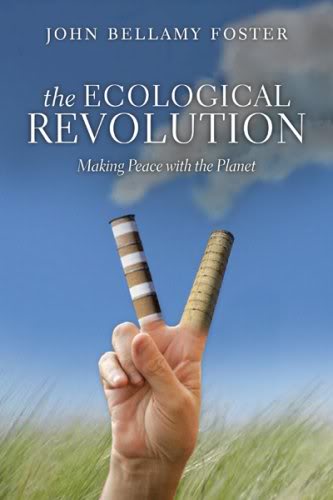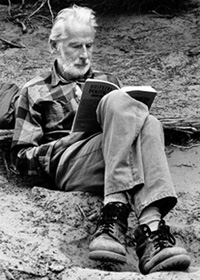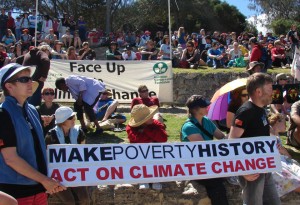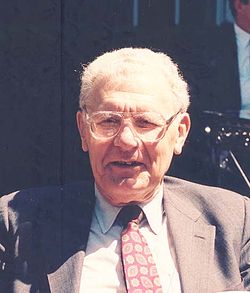 John Bellamy Foster is editor of the US socialist journal Monthly Review and author of Marx's Ecology and The Ecological Revolution. Aleix Bombila writes for En Lucha (Spain). This interview first appeared in English at MRZine.
John Bellamy Foster is editor of the US socialist journal Monthly Review and author of Marx's Ecology and The Ecological Revolution. Aleix Bombila writes for En Lucha (Spain). This interview first appeared in English at MRZine.
En Lucha: In your book Marx's Ecology you argue that Marxism has a lot to offer to the ecologist movement. What kind of united work can be established between Marxists and ecologists?
John Bellamy Foster: I think it is important to recognise that Marxists and ecologists are not entirely different groups. Of course it is true that there have been Reds who have been anti-ecological and Greens who have been anti-Marxist. But it is not uncommon for the two to overlap, and increasingly to converge. Many socialists are environmentalists and many environmentalists are socialists. Indeed, there is a sense in which Marxism and ecology, both classically and today, lead to the same conclusion. For Marx, the goal was the creation of a society in which the metabolic relation between humanity and nature (i.e. production) was rationally regulated by the associated producers. The original title of my book that you refer to was supposed to be Marx and Ecology, but I changed it to Marx's Ecology because of the depth of Marx's ecological conceptions.
I would argue that a critical Marxist approach, especially in our time, requires an ecological worldview, while a critical human ecology requires an anti-capitalist and ultimately socialist orientation (i.e., a Marxist one). In terms of united work that Marxists and ecologists can share, I would say social justice and environmental sustainability: saving humanity and saving the Earth. You can't expect to achieve one without the other, and neither is possible under the existing system.
Probably the strongest single voice for an ecological relation in the world today is Evo Morales, the socialist (and Indigenous) president of Bolivia. After the failed Copenhagen conference on climate change, Fidel Castro said that we used to think we were in a struggle simply to determine the society of the future, but we now know we are in a struggle for survival. We have reached a point where historical materialists are taking global leadership in defining the ecological needs of humanity.
The struggle against climate change looks kind of abstract at first sight. How can we organise campaigns against climate change with a real impact? Who should promote them?
Devamını oku...









 John Bellamy Foster is editor of the US socialist journal
John Bellamy Foster is editor of the US socialist journal  IT IS hard to imagine a less enticing title for a book than “Introduction to Operations Research”. Yet Russ Ackoff, one of the authors of this tome of 1959, who died on October 29th aged 90, did not just help to define a nascent branch of industrial engineering. He wrote 30 other books, becoming one of the most influential management gurus of the 20th century in the process. His ideas about systemic thinking are vitally important today if the world is to come out of the current economic crisis in better shape than it went into it.
IT IS hard to imagine a less enticing title for a book than “Introduction to Operations Research”. Yet Russ Ackoff, one of the authors of this tome of 1959, who died on October 29th aged 90, did not just help to define a nascent branch of industrial engineering. He wrote 30 other books, becoming one of the most influential management gurus of the 20th century in the process. His ideas about systemic thinking are vitally important today if the world is to come out of the current economic crisis in better shape than it went into it.


